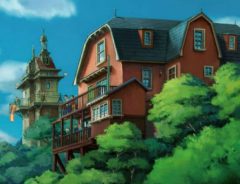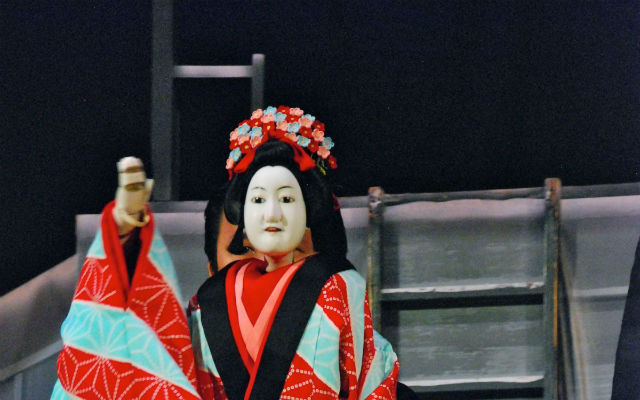- Tags:
- Bunraku theater / Japan / streaming
Related Article
-

Fresh Watermelon Filled With Soft Serve Ice Cream Is Tokyo’s Newest Summer Treat
-

Stylized One Piece shrine and temple pilgrimage books released in Japan
-

Make-it-yourself crêpe mixture, plus three tasty sweet and savoury recipe ideas
-

Studio Ghibli Reveals 5 Planned Areas For Official Theme Park In 2022
-

Welcome Spring With A Cup Of Matcha Pudding From Starbucks Japan
-

Comic Fans Make Annual Mad Dash For Comic Market, Turning Train Station Into Mad House



Right now the internet is blowing up with entertainment aimed at keeping us all sane whilst under lockdown. A simple google search will bring you face to screen with free manga, live musical performances, online drinking parties (some made especially for cat lovers) and to some very odd VR experiences.
If your interests tilt more to the traditional side of entertainment, then the National Bunraku Theatre’s famous hand-puppet play, ‘Kanadehon Chushingura’ (The Treasury of Loyal Retainers), is now being streamed for free by the theatre on Youtube!
Bunraku is a traditional Japanese form of hand puppetry which was first founded in Osaka around the late 1600’s. The performance takes its name from Awaji puppeteer Uemura Burakuken, who effectively helped to revive the traditional theatre durings the 18th century.
The show which is being shown on the National Bunraku Theatre’s YouTube channel, Kanadehon Chushingura, is based on a fictionalised version of the famous 47 ronin story. The 11 act puppet play was originally composed in 1748 and has remained as one of Japan’s most popular plays ever since. Due to the play’s large success it was almost immediately adapted for Kabuki performances.
The story itself was composed over a number of years, which came after the rebellion of the 46 ronin (the 47th ronin, Terasaka Kichiemon, was pardoned by the Shogun and lived a long life) and their ultimate seppuku suicide which happened on the 20th of March 1703. Almost immediately after the tragic events a kabuki show was staged, but fell in poor taste of the authorities who quickly shut the performance down. Three years later and the playwright Chikamatsu Monzaemon had written a script for a 3 act puppet performance that placed the events in the 14th century, covering up the link to the recent tragedy. The cover up worked and another three years later the first ever version of Kanadehon Chushingura was performed in the Kansai region, where it immediately gained popularity. From 1706 to 1748 the puppet play saw numerous imitations by playwrights and puppeteers, and was eventually fleshed out by Takeda Izumo (1948 version) to the performance we can enjoy today.
Retelling the events of 1703, the performance focuses on the themes of loyalty and vengeance as 47 retainers of lord En’ya (the name replacing Asano so as to not draw censorship attention when the play was first performed) vow revenge against Lord Moronao (renamed in the play for the same reason as that of Asano) for the death of their lord.
The events of the play and that of real life inspired numerous performances and displays in opera, cinema and television, literature and ukiyo-e woodblock prints.
Taking part in the movement to online broadcasts – due to the closure of public venues after the state of emergency was announced by the Japanese government in mid April – the National Bunraku Theatre is streaming all parts of the 11 act play on YouTube.
This was all made possible as part of the 39th anniversary celebrations of the National Bunraku Theatre in 2019, the full performance of Kanadehon Chushingura was recorded, making for great entertainment during the current crisis.
After the outbreak of COVID-19, the National Bunraku Theatre was quick to shut down operations and cancelled all live performances. Moving to online platforms, the theatre broadcasted recordings of the Kabuki play, ‘Yoshitsune Senbon Zakura’, which was available for a limited time on the venue’s YouTube channel until the 30th of April. Following the upload of the kabuki play, the theatre has also provided access to a virtual tour of the Noh mask and costume exhibit which is available online until 12pm on the 1st of June.
All of the recordings of Kanadehon Chushingura will be accessible on the channel for a limited time until the 1st of June, 2020. It appears as though the theatre will continue to make performances available on the online platform until the restrictions on venues are lifted. To find out what is coming next online from the theatre keep an eye on their feature webpage.